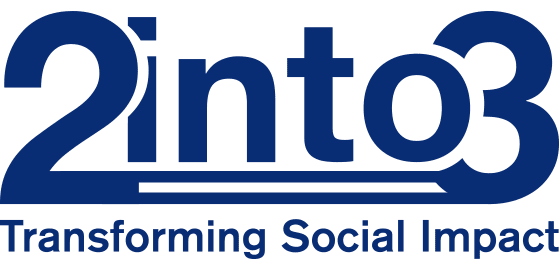Integrating a Mental Health Approach in Your Nonprofit in 2023
As we enter 2023, it is important to reflect on the year gone by, and equally to look forward to fresh starts. The nonprofit sector is no different and Mental Health Reform’s recent event, ‘Coalition Conversations; Celebrating the work of the Mental Health Sector in 2022’ was an insightful morning. There were representatives from organisations including HAIL, Doras, ISPCC, Jigsaw, A Lust for Life, KDYS, Cairde and the HSE, as well as mental health advocates, university lecturers from Maynooth and WIT and the Ombudsman for Children.
These panel discussions orientated around the three core themes of housing and health, youth mental health and health in era of global displacement, there was plenty of space for learning. One insight in particular has the potential to generate positive change within your nonprofit and across the nonprofit sector; that of embedding a mental health approach.
Mental health today
One in every four people will experience mental health difficulties at some point in their life,[1] making it one of the most pressing issues of our time. There is increasing awareness that mental health problems are complex, cross-cutting and inextricably linked to the environment we live in. Oftentimes, they are produced and perpetuated by the presence of deprivation, poverty, inequality and other socio-economic factors. [2] Mental health does not exist in a vacuum and often transcends individual actions, thus the wellbeing of society must be considered in light of structural determinants.
At present, Ireland is experiencing a housing crisis[3] which is driving insecurity and acting as a barrier to a thriving society. In addition, the rising cost of living, international conflict, and the fallout from the pandemic have resulted in increased vulnerabilities. This has denied many individuals of safety and security, essential pillars to our wellbeing. In recognising that mental health is so much more than a simple absence of mental illness, and that there are a multitude of external influences, we must in turn see the value in multi-sector approaches. [4]
A multi-sector approach would complement the health services by creating programmes and policies across the sectors of education, housing, employment, social welfare and legal support which are sensitive to mental health. This involves inter-departmental government cooperation[5] , as well as Nonprofits and civil society organisations building on a history of cross-sector collaboration to strengthen overall mental health responses.
The case for integrating a mental health approach
Nonprofits are uniquely positioned in Irish society, working to build inclusion and resilience and to foster community development. Nonprofits engage with some of the most marginalized and disadvantaged groups of people in our society. These include ethnic minorities, migrants, children and young people, unemployed people and older people, all of whom are at high risk of developing mental health problems. [6]
In this sense, nonprofits have first-hand experience of the emotional and psychological effects of issues such as homelessness, displacement, addiction, abuse and poverty. They are at the forefront of witnessing the causes and consequences of mental health problems and as a result are central to forming solutions.
What does a mental health approach look like?
Dynamic and cohesive responses which are proactive instead of reactive are the future. Moving forward, a progressive mental health approach should advance from siloed, fragmented responses and towards an open system of collaboration.
This involves an acceptance of the presence of mental health as an aspect of working with people. Furthermore, it also involves an opening up of the conversation around mental health. It is about increasing awareness of the issues vulnerable groups face, both in maintaining positive mental health and wellbeing and in accessing supports. It could be making a conscious effort to prioritise training around mental health awareness, adopting culturally sensitive mental health supports or committing to a developed understanding of the intersecting factors that can contribute to positive mental health.
There could be increased activity around mental health advocacy and campaigns, or an elevated effort to enhance joint initiatives between organisations. Furthermore, a mental health approach should be inclusive and comprehensive, sensitive to the mental health of staff and volunteers.
The result
Steps towards developing a mental health approach can be big or small, however any effort could have a transformative effect on the impact of your nonprofit and in turn, on society in general, serving to embed a people-orientated approach in services and supports, create sustainable solutions and contribute to the normalisation of conversations on mental health and the deconstruction of the stigma associated with mental health in Ireland.
Further Support
If you’re interested in developing organisational change within your nonprofit, consider developing a Strategic Plan. This will help unify and motivate your organisation to think about future sustainability and organisational change. For more information, visit our website or contact our Director of Advisory Services, Sheena Horgan at sheena.horgan@2into3.com.
Footnotes
[1] Healthy Ireland Framework 2013-2025, Health Services Ireland https://assets.gov.ie/7555/62842eef4b13413494b13340fff9077d.pdf?external=1
[2] WHO (2011) Impact of economic crises on mental health, 2011. https://www.euro.who.int/__data/assets/pdf_file/0008/134999/e94837.pdf
[3] Housing for All – a New Housing Plan for Ireland (05/09/21), Department of Housing, Local Government and Heritage https://www.gov.ie/en/publication/ef5ec-housing-for-all-a-new-housing-plan-for-ireland/
[4] WHO (2022) World mental health report: Transforming mental health for all. https://www.who.int/publications/i/item/9789240049338
[5] WHO (2022) World mental health report: Transforming mental health for all.
[6] WHO (2011) Impact of economic crises on mental health, 2011.


